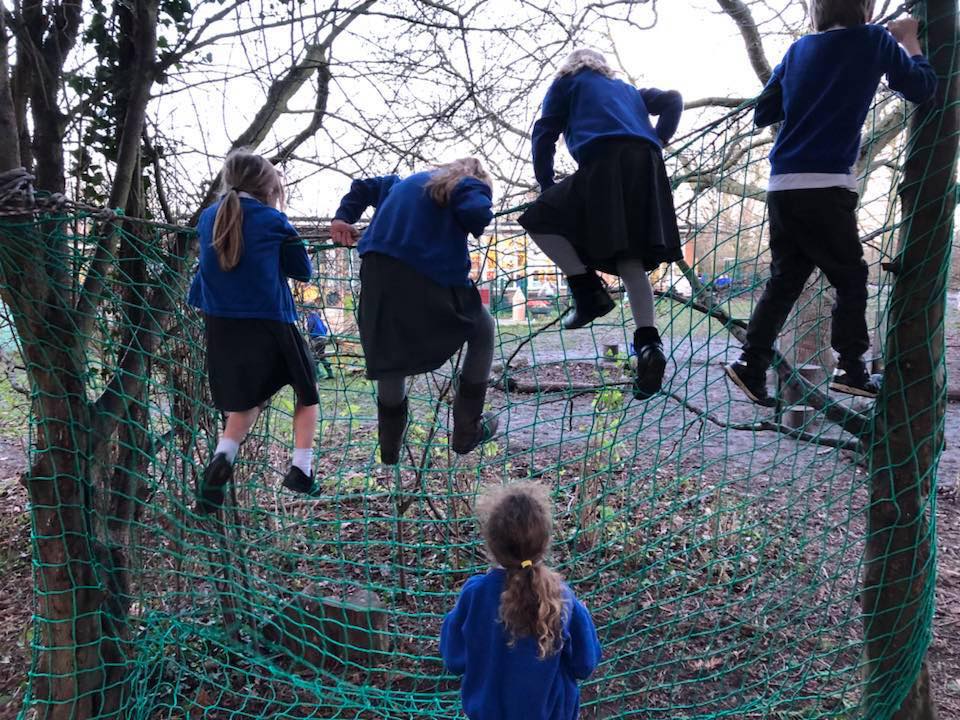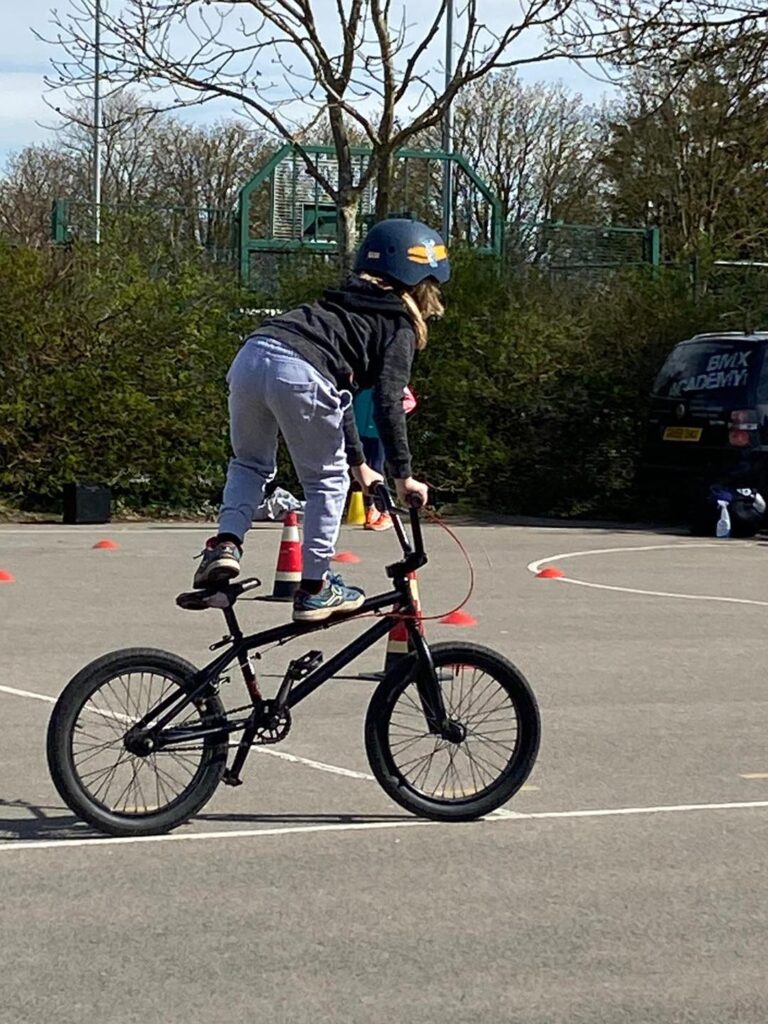What Impact Has COVID Had on Children and Their Play?

During lockdown, our lives and the lives of our children, including their play, looked very different. Some reports refer to our children as the “Covid Generation” but what exactly has been the impact on our children and how could play make all the difference to their future?
How Did Play Look Different During the Pandemic?
The type of play children could participate in during lockdown was different because life was very different. There was no school for most, no clubs and activities and less opportunity to be outside.
Who children were playing with also changed. There were fewer opportunities for them to play with friends or peers and so children had to find playmates within their own household or bubble. Siblings or adults were the only options and a child’s experience of play could vary hugely depending on theirs, and their family’s circumstances.
Some families experienced the pressure of parents trying to work from home and the added responsibility of homeschooling where play could end up being low on the priority list. Some families were able to spend more time together doing activities and things that involved or created play.
Playing in the garden, making up inside games and discovering new hobbies. Sales of garden play equipment and arts and crafts materials went through the roof. Unsurprisingly, screen time increased too. When some restrictions were lifted families could explore their local area, sometimes for the first time.
Early Signs of the Impact on Children: Globally
Save the Children published a report in 2020 called Covid’s Kids: Repaying our debt to the Covid Generation which compiles the emerging view from over 100 countries. According to this report, the impact of the pandemic on children worldwide is huge. The report describes the very real risk in some countries of children, in particular girls and children living with a disability, not returning to school.
- “During the early months of the crisis, more than 1.5 billion children were not attending school. It is likely that 30 million of these children will never return to formal education”
A pressure on children to provide for themselves or contribute to their household has been identified as a risk in some countries which is made worse in times of crisis.
- “Reports are emerging of growing numbers of children engaged in child labour”
The report identifies the pandemic as additional pressure on children and adolescents and therefore a contributing factor to mental health conditions that are more likely to develop at this time in their lives.
- “Some children are being increasingly exposed to violence”
- “The pandemic is deepening the mental health crisis among children”
Not an uncommon cause for concern, the online risks posed to children are identified as increased because of education offers being accessed via the internet and more free time spent online.
- “Lockdown measures are driving childhood online and exposing children to new risks”

Early Signs of the Impact on Children: UK
A government report published in November 2020 found that some children, regardless of age or background, had lost some basic skills and learning because of the school closures during the first lockdown. Some children had lost stamina when it came to reading and writing, some younger children had gone back into nappies where they had been previously using the toilet and some had lost some physical fitness due to the restrictions on leaving the house.
The report found that access to a garden and quality time spent with family or caregivers helped to lessen this negative impact.
Another report on children’s wellbeing was summarised by Children and Families Minister Vicky Ford saying: “There is no denying that this pandemic has been a difficult experience for parents and children alike and I applaud the amazing resilience of our young people”.
This report found that whilst “only one-third to one half of primary age children had regular contact with friends between April and August 2020”, “Children’s happiness with their families has remained high, with the majority of parents reporting their relationship with their children had remained the same over the pandemic – while more than 25% say it had improved.
What Impact Has Smartkidz Seen on Children?
As with the government reports, children here have certainly been impacted differently depending on their experience of lockdown. Some children may have spent a lot more time playing with siblings or parents, some children didn’t have as much exposure to this because parents had to attempt to juggle work, home life, education and everything else!
For children in flats or houses with no gardens, being able to go outside was difficult as they were restricted to short time outside to exercise.
Parents’ anxieties around Covid also would have impacted this as children pick up on these anxieties and therefore show anxieties around Covid themselves. The Department for Health report agrees, noting that children have been not only worrying about their own health but also the risk Covid-19 posed to their family and friends.

Does Something Need to Be Done to Help Our Children Because of COVID-19?
There has been a lot reported in the news about the impact on and recovery of school work and learning right from the early years through to those in university education. Extra lessons, changes to assessments and exams, a focus on core skills.
When children were able to come back to Smartkidz, there was “a lot more rough and tumble play and the boundaries of that rough and tumble play had been lost over lockdown”. When children are able to play together in rough and tumble play they learn the boundaries of what is too hard for which child. This develops to the point that a bigger child would know to play more carefully with a younger child than they would need to with one their own age.
Save the Children argue that children have been disproportionately impacted by the crisis and therefore we need to ensure that their futures are “defined not by the virus”. For this to be achieved they have identified the way to “make up for those lost lockdown moments” is to inspire everyone across the UK to create a million moments of play. They have directly identified that play is the way children, the world over, can “bounce back”.
Can Play Really Help?
The reports suggest that it was in the instances when our children were able to spend time with their families that actually had a positive or supportive impact on their experience. It was only where these experiences were lacking, that the risks were identified.
A study undertaken in Canada found that during the pandemic and restrictions on movement an increase in activities relating to hobbies, arts and crafts, puzzles or games were seen to have a positive impact on both children and their families. And this is something that has been reflected in what Smartkidz leader Adam has seen.
“We saw that children enjoyed spending times with their “bubble” whoever that may be doing things like going for walks around their village, walking around nearby woods and nature reserves”.
In the example of rough and tumble play where some skills have been lost, it is through playing together again and taking risks that the children are able to reconnect and rebuild.
Now more than ever, play is vital for children. They can find their feet again, explore and socialise and reset their OWN boundaries. By allowing risk and allowing them to go outside their comfort zones and push their bodies in play, children can increase their self-esteem and self-worth. This in turn can help relieve anxiety for those children who did miss out on play experiences because of COVID.
